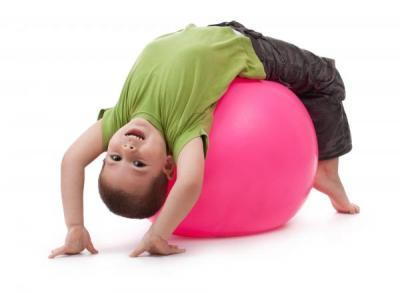oc·cu·pa·tion·al ther·a·py noun
a form of therapy for those recuperating from physical or mental issues that encourages rehabilitation through the performance of activities required in daily life.
 Occupational therapy practitioners ask, "What matters to you?" not, "What's the matter with you?" In its simplest terms, occupational therapists and occupational therapy assistants help people across the lifespan participate in the things they want and need to do through the therapeutic use of everyday activities (occupations).
Occupational therapy practitioners ask, "What matters to you?" not, "What's the matter with you?" In its simplest terms, occupational therapists and occupational therapy assistants help people across the lifespan participate in the things they want and need to do through the therapeutic use of everyday activities (occupations).
Common occupational therapy interventions include helping children with learning disabilities, autism or adhd to participate fully in school and social situations; helping people who are recovering from brain injury to regain skills; and providing support for older adults experiencing physical and cognitive changes. Occupational therapy services typically include: an individualized evaluation, during which the client/family and occupational therapist determine the person’s goals, customized intervention to improve the person’s ability to perform daily activities and reach the goals, and an outcomes evaluation to ensure that the goals are being met and/or make changes to the intervention plan. Occupational therapy services may include comprehensive evaluations of the client’s home and other environments (e.g., workplace, school), recommendations for adaptive equipment and training in its use, and guidance and education for family members and caregivers. Occupational therapy practitioners have a holistic perspective, in which the focus is on adapting the environment to fit the person, and the person is an integral part of the therapy team.
There are concrete benefits to occupational therapy – those where it is easy to measure the progress, such as improving someone with a traumatic brain injuries ability to care for his/herself and complete daily activities. The less obvious benefits of occupational therapy may include:
- Creating interventions to help a child appropriately respond to information coming through the senses. Intervention may include developmental activities, sensory integration or sensory processing, and play activities.
- Facilitating play activities that instruct as well as aid a child in interacting and communicating with others. Identifying, developing or adapting engagement in meaningful activities that enhance the child’s quality of life.
- Reducing environmental barriers that limit a child’s participation in family, learning and community based activities.
- Identifying needed assistive technology devices and supports. Preparing the family and child for changes in roles and routines.
- Educating the family and school staff on diverse needs of the child.
- Enhancing social skills development and leisure activities in the school environment. Assisting with school mobility, recommending adaptations, accommodations and equipment.
What is the Desired Outcome of Occupational Therapy?
Occupational therapists target desired outcomes and determine the services, supports, and modifications or accommodations needed to achieve those outcomes. Through an understanding of the impact of disability, illness and impairment on the way a child develops, plays and learns new skills, occupational therapists improve a child’s ability to participate in daily life. The desired outcome of the treatment is to help children learn to be as independent as possible. This can range from improving physical abilities so the child can participate in self-care to helping the child be prepared to perform school-related activities. Since each child is unique, the goals and outcomes of the therapy treatment plan will be specific to that child and his or her needs. This means that the therapy is ongoing until the child attains the necessary skills. Once skills are mastered in one area, say self-care, the therapy will focus on other skills that are needed to be functional in the community.
Connections Achievement and Therapy Center offers the latest technology and methods for occupational therapy. If you think your child may be having issues, make an appointment with our specialist today!
